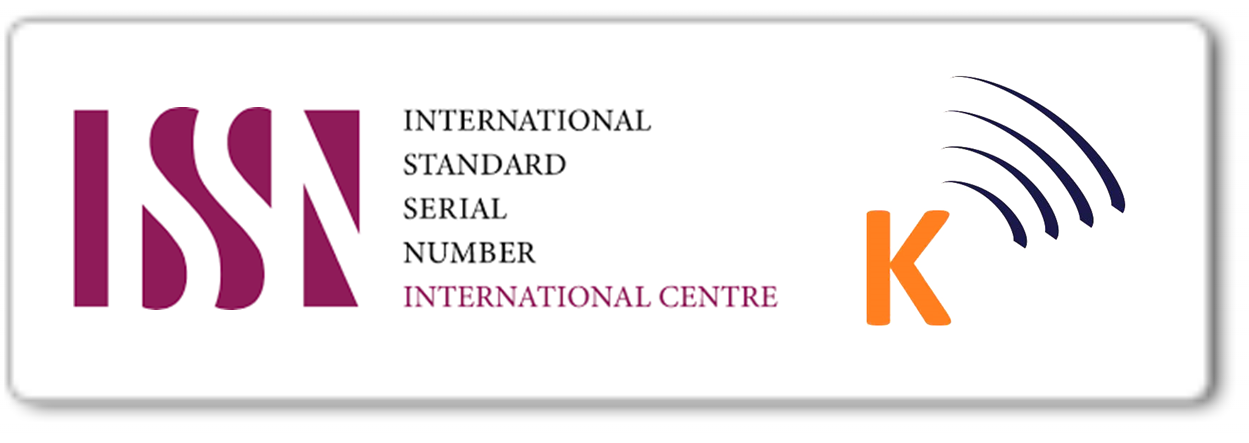KURIKULUM PENDIDIKAN VOKASI PADA ERA REVOLUSI INDUSTRI 4.0
Keywords: curriculum in 4.0 industrial revolution, kurikulum di revolusi industri 4.0, pendidikan vokasi, vocational education
Abstract
Vocational education purpose is to produce ready-to-work graduates who have the relevant skills for current job employment. Entering the industrial revolution era 4.0 there were massive changes in various industries and workers' ability needs. This article intends to examine the implications of the industrial revolution 4.0 era for vocational education curriculum. Based on the study of various sources and business practices, it is necessary to develop vocational education curriculum that are in accordance with the era of industrial revolution 4.0 and relevant to answering the needs of new skills, such as the ability to create and manage coding, big data, and artificial intelligence. The vocational curriculum needs to apply blended learning, which integrates face-to-face and online learning, so as to more effectively build graduates' abilities and skills. The curriculum also needs to contain mastery of 4.0 competencies such as data literacy, technology literacy and human literacy. In order for the vocational education curriculum to have a broad impact, the government, educational institutions, industries must work together to revitalize the approach and content of the vocational education curriculum. Teachers must also be able to implement good learning to produce optimal graduate performance.
Pendidikan vokasi merupakan pendidikan yang menghasilkan lulusan siap kerja yang memiliki keterampilan sesuai kebutuhan dunia kerja. Memasuki era revolusi indusri 4.0 terjadi perubahan yang masif pada perbagai industri dan kebutuhan kemampuan pekerja. Artikel ini bermaksud mengkaji implikasi era revolusi industri 4.0 bagi kurikulum pendidikan vokasi. Berdasarkan kajian berbagai sumber dan praktek bisnis, diperlukan pengembangan kurikulum pendidikan vokasi yang sesuai dengan era revolusi industri 4.0 dan relevan menjawab kebutuhan keterampilan baru, seperti kemampuan membuat dan mengelola coding, big data, dan artificial intelligence. Kurikulum vokasi perlu menerapkan pembelajaran blended learning, yang mengintegrasikan pembelajaran tatap muka dan online, supaya lebih efektif membangun kemampuan dan ketrampilan lulusan. Kurikulum juga perlu memuat penguasaan kompetensi 4.0 seperti literasi data, literasi teknologi dan literasi manusia. Agar kurikulum pendidikan vokasi menghasilkan dampak yang luas, pemerintah, lembaga pendidikan, industri harus bersinergi untuk merevitalisasi pendekatan dan isi kurikulum pendidikan vokasi. Pengajar juga harus dapat menyelenggarakan pembelajaran yang baik untuk menghasilkan kinerja optimal lulusan.
Downloads
References
Adebayo, B. R. (2018). Curriculum and textbook program development provision comparison in china, mexico, the caribbean and nigeria: The way forward. Library Philosophy and Practice, , 1-15.
Afrina, Eka, dkk. (2018). Vokasi di era revolusi industri: Kajian ketenagakerjaan di daerah. Perkumpulan Prakarsa: Jakarta.
Akhmetov, L. G., Kirillova, O. V., Kirillova, T. V., Varlamov, A. V., Kashina, S. G., Safin, R. S., Sharonov, I. A. (2016). The managerial mechanism of future competitive technical specialists vocational training: The russian experience. International Review of Management and Marketing, 6(2).
Bhattacharyya, E. (2018). Stakeholders perspective on communicative competence in industry 4.0: Walk the talk of informative technologists. Les Ulis: EDP Sciences. doi:http://dx.doi.org/10.1051/shsconf/20185303001.
Buasuwan, P. (2018). Rethinking thai higher education for thailand 4.0. Asian Education and Development Studies, 7(2), 157-173. doi:http://dx.doi.org/10.1108/AEDS-07-2017-0072.
Finch Curtis.R & Crunkilton. (1984). Curriculum development in vocational and technical education: Planning, content, and implementation. Sidney. Allyn and Bacon Inc.
Gentili, C. (2017). “Time out†for classical studies? The future of italian liceo classico in the 4.0 world. Estudios Sobre Educación, 33, 127-143.
Hang, N. P. T., Thuy, L. T., & Tam, P. T. (2018). Impacting the industry 4.0 on the training quality and student's satisfaction at lac hong university. Journal of Management Information and Decision Sciences, 21(1), 1-18.
Muhammad Yahya. (2018). Orasi ilmiah professor bidang ilmu pendidikan kejuruan Universitas Negeri Makassar Tanggal 14 Maret 2018.
Nasir, M. (2018). Peningkatan mutu vokasi dalam Menghadapi era revolusi industri 4.0 Kementerian Riset, Teknologi, dan Pendidikan Tinggi.
Ngakan Timur Antara. (2019). Kepala Badan Penelitian dan Pengembangan Industri (2019). Disampaikan pada: Indonesia industrial summit 2019 Tangerang Selatan, 16 April 2019.
Sudira (2018). Metodelogi pembelajaran vokasional abad XII. Yogyakarta. UNY Press.
Sukmadinata, Nana S. (2008). Pengembangan kurikulum: Teori dan Praktek. Bandung: Remaja Rosdakarya.
Trilling, B & Fadel, C. (2009). 21st-century skills: learning for life in our times. US: Jossey-Bass A Wiley Imprint.
Triyono, Moch Bruri (2017). Seminar Nasional Vokasi dan Teknologi (SEMNASVOKTEK). ISSN Cetak : 2541-2361 | ISSN Online : 2541-3058.
Wahidin. D. (2018). Direktur kemahasiswaan Ditjen Belmawa Kemenristekdikti. Mencari format kegiatan kemahasiswaan di era revolusi industri 4.0.
Wolf, M., Kleindienst, M., Ramsauer, C., Zierler, C., & Winter, E. (2018). Current and future industrial challenges: demographic change and measures for elderly workers in industry 4.0. Annals of the Faculty of Engineering Hunedoara, 16(1), 67-76.
Ye-weon Jeon, dkk, 2017 Developing the competencies of vocational teachers in the age of 4th industrial revolution, the 13th AASVET annual conference 22 Oktober 2017, Seoul.







